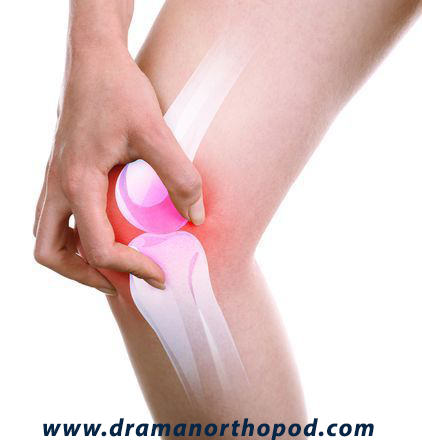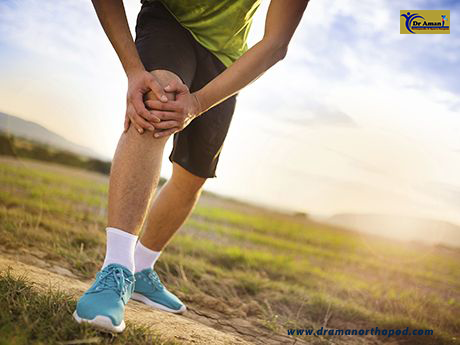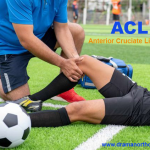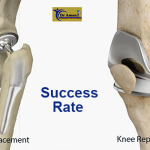Introduction : Knee Pain
Running, a pursuit that brings joy to many, can also bring along the unwelcome companion of knee pain. Whether you’re a seasoned athlete or someone who enjoys a daily jog, understanding the intricacies of knee pain after running is crucial for maintaining a healthy and pain-free exercise routine. In this comprehensive guide, we’ll delve into the causes of knee pain, preventive measures, and effective solutions to ensure you can continue your running journey without the hindrance of persistent discomfort.
Understanding the Causes of Knee Pain After Running
1. Runner’s Knee
Runner’s knee, scientifically known as patellofemoral pain syndrome, is a prevalent issue among runners. This condition occurs when the knee cap undergoes excessive pressure, leading to soreness. Factors like improper running posture or choosing hard surfaces can contribute to this ailment.
2. IT Band Syndrome
Iliotibial (IT) band syndrome is often encountered by long-distance runners. Overusing the IT band, a connective tissue running from hips to knees, can result in stiffness or tears. This syndrome manifests as severe pain on the outer side of the knee.
3. Knee Bursitis
Running without adequate warm-up can lead to knee bursitis, characterized by the inflammation of the fluid-filled sac near the knee joint. This condition is exacerbated by sudden increases in running intensity or duration.
4. Patellar Tendinitis
The patellar tendon, connecting the knee cap to the shin bone, can suffer injuries during running, causing patellar tendinitis. Overexertion or sudden movements can lead to the tearing of this tendon, resulting in significant pain.
5. Meniscus Tear
A tear in the meniscus, the cartilage between the shinbone and thigh bone, is another potential cause of knee pain after running. Sudden movements or pushing beyond the usual mileage can lead to the tearing of this crucial cushioning structure.
How to Prevent Knee Pain When Running

Get Enough Rest and Avoid Overexertion
Rest is essential for recovery. Avoid pushing your body too hard, and ensure that you provide ample time for your muscles and joints to recuperate.
Incorporate Joint-Strengthening Exercises
Include exercises targeting knee and hip strength in your routine. These exercises enhance joint stability, reducing the risk of injuries.
Prioritize Proper Warm-Up Sessions
Always engage in a thorough warm-up before your running sessions. This prepares your joints for the upcoming activity and minimizes the strain on your knees.
Choose the Right Footwear
Invest in proper running shoes that provide adequate support. Ill-fitting or worn-out shoes can contribute to knee pain and other associated issues.
Strengthen the Lower Body
Focus on strengthening your hips, thighs, and pelvic region. A robust lower body provides better support to your knees during running.
Maintain a Healthy and Balanced Diet
A nutritious diet plays a crucial role in overall joint health. Ensure you have a well-balanced diet that promotes joint strength and resilience.
Stay Hydrated
Adequate hydration is vital for joint lubrication. Drink enough water to keep your joints functioning smoothly during your runs.
Ensure Quality Sleep
Quality sleep is integral to muscle and joint recovery. Make sure you get sufficient rest to prevent inflammation and pain.
Strategies to Alleviate Knee Pain from Running
Home Remedies
Apply a cold pack to reduce inflammation and pain.
Take plenty of rest and avoid strenuous activities.
Maintain a comfortable position for your knees.
Incorporate turmeric into your diet for its anti-inflammatory properties.
Exercises for Sore Knees
Standing Quad Stretch: Improve flexibility and relieve knee pain.
Straight Leg Lift: Strengthen knee muscles while lying down.
IT Band Stretch: Target the iliotibial band to alleviate pain.
Medication
Consult your doctor for appropriate painkillers, NSAIDs, or corticosteroids based on the severity of your condition. Follow your doctor’s prescription for optimal results.
Alternative Treatment – Laser Pain Therapy
Explore laser therapy as a safe and effective alternative for persistent knee pain. This scientifically proven treatment stimulates natural healing mechanisms, offering relief after a few sessions.
Frequently Asked Questions (FAQs)
Q1: Can I continue running if I have knee pain?
A: It’s advisable to consult a healthcare professional before continuing running with persistent knee pain. Running without addressing the underlying issue may exacerbate the condition.
Q2: How long does it take to recover from runner’s knee?
A: The recovery time varies based on the severity of the condition. Mild cases might improve with rest and home remedies, while severe cases may require medical intervention and a more extended recovery period.
Q3: Are there specific foods that can help prevent knee pain?
A: Foods rich in omega-3 fatty acids, antioxidants, and anti-inflammatory properties, such as fatty fish, berries, and turmeric, can contribute to joint health.
Q4: Is laser pain therapy safe?
A: Yes, laser pain therapy is a safe and scientifically proven alternative treatment. Consult with a qualified healthcare professional to determine its suitability for your specific condition.
Q5: Can improper footwear cause knee pain?
A: Yes, ill-fitting or worn-out shoes can contribute to knee pain. Invest in quality running shoes that provide proper support and cushioning.
Conclusion
More than half of running injuries manifest in the knees, making it crucial for runners to understand and address knee pain effectively. By incorporating preventive measures, adopting proper running practices, and exploring innovative treatments like laser pain therapy, individuals can continue their running pursuits with reduced risk of knee-related discomfort.Best medical doctor can treat this problem is the Orthopedic & Sports surgeon.You can book your appointment with the orthopedic and sports surgeon.





